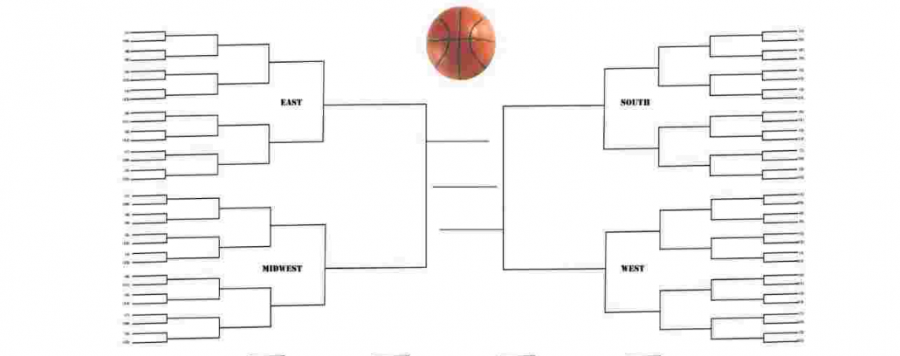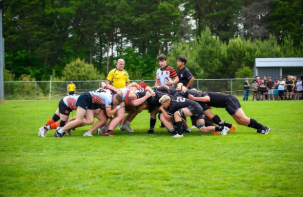It’s March Madness and the question remains, what is the best bracket strategy? We decided to experiment by creating eight brackets using a wide variety of methods.
Follow along with this link: http://fantasy.espn.com/tournament-challenge-bracket/2019/en/group?groupID=3450709
Latest updates will be written in bold.
Seed
This is fairly straightforward. I simply selected the better seed of the two. For the Final Four, winners were chosen based on the final AP rankings.
The Final Four for this bracket was composed of Duke, Gonzaga, Virginia, and North Carolina with the Blue Devils coming out on top.
As the tournament enters the sweet sixteen, the top seeds have lived up to their rankings. This bracket is tied for first in our ranking and also has the highest scoring potential. With all of the first, second, and third seeds still in the tournament, success has been high. This bracket currently stands at the 63.3 percentile among all entered in the contest.
Seed continued to do relatively well with a 86.3 percentile at the end of the tournament. Having Virginia in the final game was obviously advantageous. Generally, the top three seeds had good success, as expected, throughout the tournament. This bracket was the second best of our eight.
Field Goal Percentage
Again, choosing the winners was simple for this bracket. It was whoever had the highest percentage.
The Final Four was unexpected for this bracket, with Belmont, Gonzaga, Tennessee, and Wofford. Gonzaga took the title in this prediction.
This bracket has consistently been the worst performing of the eight. Tennessee and Gonzaga remain in the tournament, but the other two teams in the Final Four have been eliminated. Only 280 points have been scored on this bracket, and it places at the 4.1 percentile.
This bracket continued to underperform, ending last of the eight brackets in the group. With the exception of Gonzaga, all picks were incorrect once games occurred in the sweet sixteen. Gonzaga proceeded to lose in the elite eight, eliminating any chance for further scoring.
Coin Toss
I wanted to do something completely random for one of the brackets, just to see how much luck is really incorporated into choosing the perfect bracket. I chose the higher seed for the first round to give the bracket some sort of success, but after the first round I flipped a coin to determine the winner.
The coin was certainly not in my favor that day, with the Final Four being made up of Maryland, Michigan, Ole Miss, and Houston. Maryland claimed the title for this one.
The coin toss bracket has had more success than expected. It remains tied for fourth, but the champion, Maryland, has already lost a game. Although points were scored early on, this bracket only has a maximum of 660 points, so it will likely drop in our ranking as the next rounds proceed.
The bracket fell after the elite eight with only Duke surviving the sweet sixteen. This was not a successful bracket, as it tied for sixth in our ranking. It is safe to say that a coin toss is not the best way to go for making the perfect bracket.
Upsets in History
Now this one gets somewhat complicated. I used data from past years to choose upsets. Based on NCAA data, I determined that in round one, there should be two #7 and #10 upsets, two #6 and #11 upsets, and two #5 and #12 upsets. Additionally, there should be one upset in each the #4 and #13 matchup and the #3 and #14 matchup. To choose which game resulted in an upset, I used a random number generator. In round two, I again used a number generator to choose a #3 and #6 upset, a #2 and #7 upset, a #2 and #11 upset, and a #3 and #12 upset. All other games were determined by seed.
Of all the brackets, this one seems to be the most realistic. The Final Four teams are LSU, Michigan, Tennessee, and North Carolina. North Carolina clenches the victory for this one.
This bracket has not been as successful as we thought it would be. There were plenty of upsets, but the random process failed to predict the correct games. This bracket is tied with fourth currently. There is some hope for this bracket to improve, however. It is second behind only the seed bracket in terms of maximum points, and the Final Four teams remain in the tournament.
This bracket is tied with the coin toss in the group rankings. None of the top teams that were in the final four surpassed the sweet sixteen, essentially making this bracket doomed. Although it did not work out this year, it may still be a good idea to look at the typical number of upsets before forming the perfect bracket next year. This bracket unfortunately failed to pick the right games. For example, this bracket had New Mexico State upsetting Auburn, which clearly did not happen.
Defense Efficiency
This bracket was determined solely by the defense efficiency statistics.
The Final Four for this are VCU, Texas Tech, Virginia, and Houston. Texas Tech is the national champion for this bracket.
Now that the first and second round is complete, defensive efficiency is in the 6.8 percentile of the ESPN Tournament Challenge . It is the ranked sixth out of the eight brackets we have made. Despite having a low accuracy rate, three teams out of the Four Final teams predicted are still in the tournament.
Predicting games according to defensive efficiency turned out to be the most efficient out all of our brackets. It finished in the 89.1 percentile after predicting the National Championship game correct, although not the winner of the game. The bracket was inaccurate in the first few rounds, but it finished highly mainly due to its accuracy in predicting the final games. Even though the bracket did not predict the national championship winner it does seem to be the best way of predicting games supporting the saying “defense wins championships”. Virginia and Texas Tech were rated as the two best defensive teams and they are who faced each other in the finals. This is no coincidence. Defense defines a team. Many teams had great offenses in the bracket this year, but defense is what gave teams like Texas Tech and Virginia the edge against their opponents.
Scoring Margin
Scoring margin was the sole factor in determining winners for this bracket. This is one we hope will remain accurate throughout the tournament.
Gonzaga, Duke, Virginia, and Wofford are the four to make it far in this scenario. The highly ranked Gonzaga came out with the win.
Scoring Margin is ranked third out of the brackets we have made, but is in the 12.1 percentile among all brackets. The bracket lost one of its Final Four picks in the second round, but the remainder of the final four teams still remain.
The bracket predicted one of the final four teams correctly and the one team they had in it, won the national championship. The bracket finished in the 68th percentile and was third in our group out of all the different strategies of picking teams. Although this strategy was third in our group this way of picking is not the best.
Offensive Scoring
Offensive scoring remains the only statistic considered for this bracket.
Belmont, Gonzaga, Tennessee, and North Carolina are the resulting Final Four. Gonzaga pulls out another victory for the offensive scoring bracket.
This bracket is the second highest out of our eight brackets in the ESPN Tournament Challenge and is in the 30.1 percentile. It also has three out of the four teams in the Final Four still in the tournament.
This bracket did not predict any of the final four correctly and is in the 68.1 percentile. The bracket finished 5th in the group. How much you score has a lot to do with who you play and two of these four teams play in conferences where they didn’t have much competition making this stat somewhat flawed.
Win/loss Percentage
Win/loss percentage provided an interesting mix of high and low seeds. Any ties in this round were broken by choosing whichever team is first alphabetically.
This Final Four features Duke, Buffalo, Virginia, and Houston. Buffalo, the underdog, takes the title in the final game.
This bracket’s winner is already out of the tournament and is ranked seventh out of our eight brackets. It is in the 5.5 percentile, but three out of its four Final Four teams have won all their games.
This bracket was not very successful, but it did predict Virginia to be in the Final Four. This bracket did improve in the group rankings, moving up to fifth. For having the winner, Buffalo, eliminated in the first round, this bracket did fairly well, earning points through the elite eight thanks to Virginia’s success.













